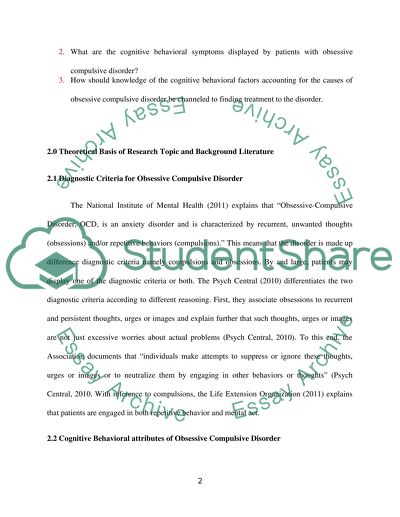Cite this document
(“Cognitive behavioral factors in obsessive compulsive disorder Thesis”, n.d.)
Retrieved de https://studentshare.org/psychology/1391657-cognitive-behavioral-factors-in-obsessive-compulsive-disorder
Retrieved de https://studentshare.org/psychology/1391657-cognitive-behavioral-factors-in-obsessive-compulsive-disorder
(Cognitive Behavioral Factors in Obsessive Compulsive Disorder Thesis)
https://studentshare.org/psychology/1391657-cognitive-behavioral-factors-in-obsessive-compulsive-disorder.
https://studentshare.org/psychology/1391657-cognitive-behavioral-factors-in-obsessive-compulsive-disorder.
“Cognitive Behavioral Factors in Obsessive Compulsive Disorder Thesis”, n.d. https://studentshare.org/psychology/1391657-cognitive-behavioral-factors-in-obsessive-compulsive-disorder.


